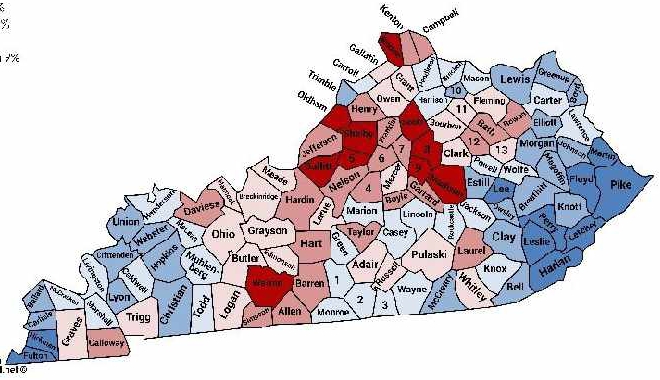A four-month delay in getting official U. S. Census data will make it even tougher.
 (Photo Provided)
(Photo Provided)
FRANKFORT, Ky. (KT) – While the job redrawing Kentucky’s Congressional and legislative districts every 10 years is a difficult enough task, a four-month delay in getting official U. S. Census data will make it even tougher.
Wendy Underhill with the National Conference of State Legislatures told the General Assembly’s Interim Joint State Government Committee on Tuesday that the Census data, which was supposed to be released in April, won’t be available until Aug. 16. Some of the reasons she cited were the COVID-19 pandemic, natural disasters such as fires and floods, and policy changes.
Senate Majority Leader Damon Thayer, R-Georgetown, a member of the committee, said Gov. Andy Beshear will have to call a special session of the General Assembly during the fourth quarter of this year to approve Congressional and legislative redistricting.
“If we don’t have a special session,” he told his fellow committee members, “we are going to have to come in January 4, pass a new bill that temporarily delays the filing deadline for one year, probably back to late January, or perhaps into early February. Because we’re then going to have to pass the new maps, wait to see if the governor signs or vetoes them, then give the people a few weeks to digest the new districts to figure out which district they live in.”
The Governor’s Office said the Republican majority has not talked to Gov. Beshear about redistricting and in multiple meetings and conversations over the last several weeks have not asked for a special session.
“Gov. Beshear is focused on ending COVID in the commonwealth and continuing Kentucky’s economic resurgence from the pandemic,” a spokesman said. “The governor and his team look forward to receiving more information from the Census Bureau later this year and determining the best option for redrawing congressional and legislative districts in the commonwealth.”
Thayer said even without the final census figures, there is a huge population shift in Kentucky.
“People are moving out of eastern Kentucky and western Kentucky, and they’re moving generally into the ‘Golden Triangle’ - Lexington, Louisville and northern Kentucky. But, more generally, between the interstates. Bowling Green has seen growth and Owensboro has seen growth. Those are the only places outside of the area between I-65 and I-75, that we’re seeing growth.”
As a result, he said they will have some tough decisions to make. “There are going to be fewer Senate districts and fewer House districts in eastern and western Kentucky. We might as well get that out on the record as early as possible. We’re in June and that’s about as early as we can.”
The preliminary data indicates Kentucky will keep all six current Congressional districts, although those boundaries will have to be redrawn for equal population in each of them, as well as the 38 Senate and 100 House districts.
Lawmakers also need to deal with judicial redistricting. Rep. Jason Nemes, R-Louisville, who has been chief of staff to former Kentucky Supreme Court Chief Justice Joseph E. Lambert and as director of the Administrative Office of the Courts, says it’s been at least three decades since this has been done, leaving the seven Court of Appeals and Supreme Court districts with widely differing populations.
“Two of the seven are more than 200,000 people less than the others,” Nemes told the panel. “We also have trial court redistricting that needs to happen.”
Lawmakers would draw the appellate districts, while the Supreme Court would determine the circuit and district court boundaries.

 Record Breakers Highlight ORVC Report for December 15-20
Record Breakers Highlight ORVC Report for December 15-20






